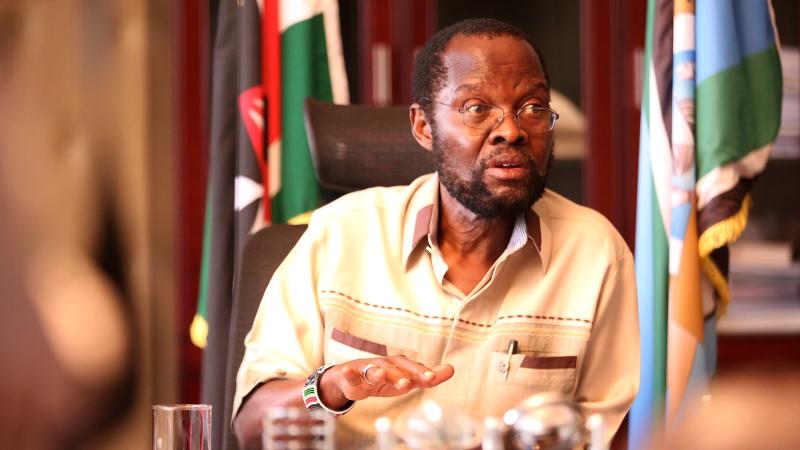 By Anyang' Nyong'o
By Anyang' Nyong'o
County governments are having a logistical nightmare of preparing for
the coronavirus pandemic against
immense public pressure to respond to
the crisis.
With restriction on movement lifted, counties such as Kisumu have seen
waves of urban-rural migration as residents return home to escape the
economic strain in the capital city. This has not only led to an
increase in contagion but also put the elderly and vulnerable at higher
risk of the Covid-19 disease.
For example, only a month ago, Kisumu County had only two cases of
community transmission. Today, we have reached 46 cases and the figure
is likely to go up exponentially.
County preparedness is being measured by the bed capacity, intensive
care facilities and ventilators, even as counties scramble to source for
personal protective equipment for medical personnel who are
increasingly being overstretched.
SEE ALSO: New Zealand postpones election as coronavirus flares up
It is a matter of concern among county officials that with limited
resources and an already burdened healthcare sector, the pandemic
threatens to cripple the capacity to deliver services.
Worse still, a spike in cases could lead to a rush for hospital care
and create a magnet for the virus, putting other patients and health
workers at risk. Indeed, most people are living on the edge wondering
whether they have already contracted the virus.
This worry alone is enough to affect the quality of life, hence the increasing need for people to know their status.
Kisumu County has come up with a mobile application for self-assessment of the virus, in collaboration with Maseno University.
The simple technology, called Luscii, is based on the experience with
management of Covid-19 related cases in Europe. It is currently being
used in multiple countries including Ghana, Nigeria, Netherlands and
Ireland.
SEE ALSO: The true cost of Covid-19
Monitor data
The technology is non-invasive and voluntary, where the residents of
Kisumu County are able to monitor their own health data, which can then
be interpreted by doctors and form a basis for medical advice.
One needs only to key in their temperature to find out if they have a
fever, whether or not it is accompanied by a cough and they will be
asked to indicate their breathing rate or if they have a sore throat or
muscle pain.
These are some of the obvious symptoms of the novel coronavirus that can
give an indication of suspected cases, but are not conclusive until one
is tested.
So by giving this and some more information on a daily basis and
indicating the severity, we can channel the limited resources to most
urgent cases, thus saving on costs and diverting the resources to the
care of those affected.
SEE ALSO: Study finds corona severe among young obese men
We hope that this service, dubbed CovidConnect will boost our capacity
for early detection of suspected cases, testing and containment so that
only those who require hospital care actually go to health facilities as
well as support home-based care. This enables the county’s health
facilities to reserve space for potential high-risk patients.
If we get this right and have the people of Kisumu County on board, and
embrace this innovative and unique approach, then we will have a chance
of beating the virus and demonstrating that counties need not panic in
the face of the unpredicted challenge. We can overcome and offer a model
that can be replicated across the country.
-
The writer is the governor of Kisumu County
 By Anyang' Nyong'o
By Anyang' Nyong'o




No comments :
Post a Comment